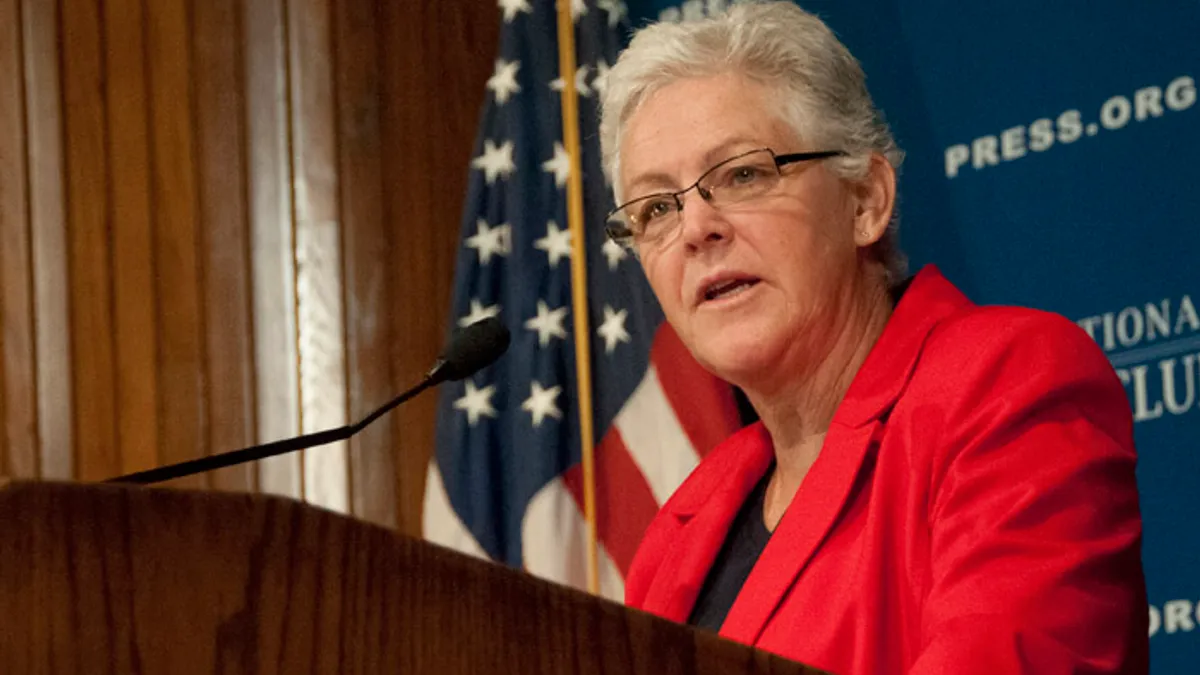Dive Brief:
- The Supreme Court's rejection of the federal government's Mercury and Air Toxics Standards (MATS) turned on very specific points that ultimately mean it will have no impact on the proposed Clean Power Plan, according to the head of the U.S. Environmental Protection Agency.
- EPA Administrator Gina McCarthy said the court's decision has not impacted plans to release a final CPP proposal this summer, The Hill reports.
- McCarthy also derided Republican efforts to attack carbon mandates through budgetary cuts, saying cutting funds would not impact CPP implementation, but could decrease EPA's ability to act as a watchdog for public health and the enviornment.
Dive Insight:
Despite Republican efforts to defund the proposal and a Supreme Court ruling some believe will have wider-ranging implications, the head of the EPA is confident the Obama administration's proposal to limit greenhouse gas emissions will be proposed as scheduled and stand up to challenges.
“EPA is still committed to finalizing the Clean Power Plan,” McCarthy said yesterday in a hearing on Capitol Hill. “Making a connection between the Mercury and Air Toxics Standards decision and the Clean Power Plan is comparing apples and oranges.”
Last month the court ruled in a 5-4 decision that the agency improperly interpreted the Clean Air Act because it did not consider the costs of emissions reductions. The Supreme Court remanded the regulation to the D.C. Circuit, which must now decide how to proceed with the EPA.
“The court seemed to go out of its way to narrow this decision, in so many ways,” McCarthy said.
While the D.C Circuit must still decide how to implement the Supreme Court's decision, McCarthy said she expects the rule will stand even once the costs – which she estimated at almost $10 billion in compliance, but balanced by $90 billion in benefits – are factored in.
Separately, McCarthy challenged Republican attempts to avoid the CPP by cutting the EPA's budget. “It definitely impacts our ability — which I think the general public has relied on — to protect their direct public health and the environment,” she said.














